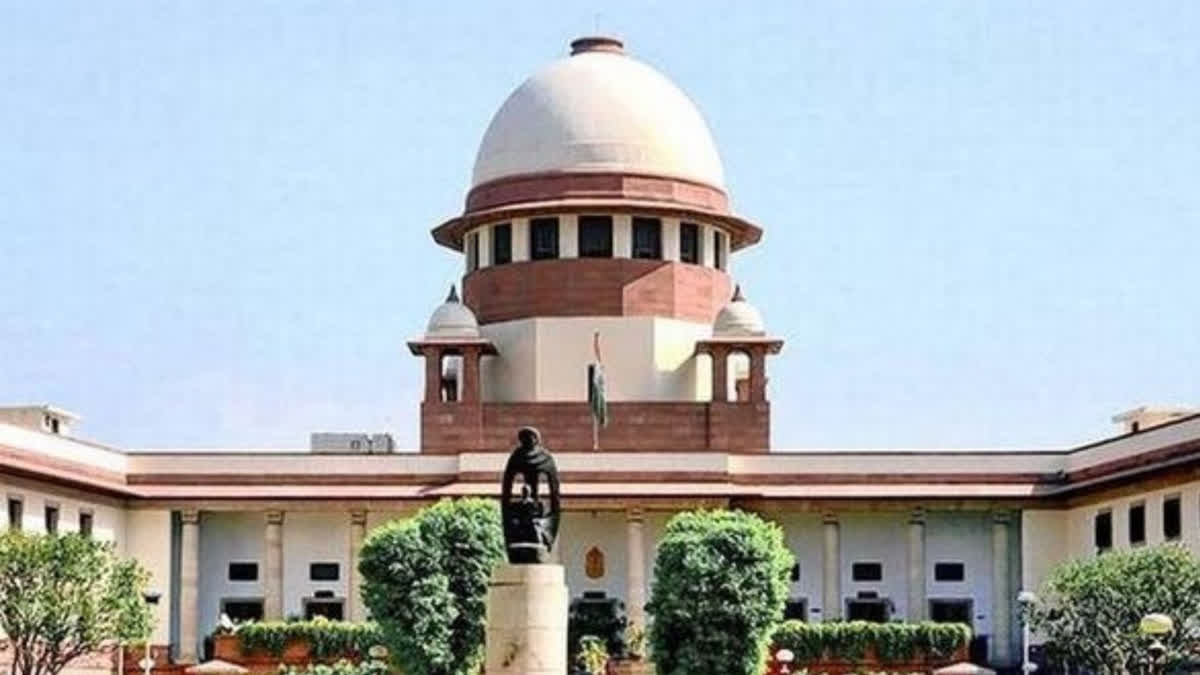New Delhi : The Supreme Court Monday expressed its discontent at frequent clashes between governors and chief ministers of state governments saying both sides need to do soul searching, while hearing a plea by Punjab government against the delay by the state’s governor in granting assent to bills. The apex court sought details by Friday regarding action taken by the governor on the state's plea that assent to the bills passed by legislative assembly has been withheld.
A three-judge bench led by Chief Justice of India D Y Chandrachud said both the state government and the governor need to do a bit of soul searching and told the counsel for parties, “Why should parties be required to move to Supreme Court for convening the budget session? These are matters to be decided by governor and chief minister”.
Senior advocate A M Singhvi, representing the Punjab government, said the speaker has simply reconvened the Vidhan Sabha, and the Vidhan Sabha had passed 7 bills, and the governor is not signing saying that on prorogation you cannot reconvene. Singhvi said this matter requires consideration from the court, as the governor is keeping the seven bills passed by the entire Vidhan Sabha and added that they are fiscal bills, education bills etc.,
The bench, also comprising justices J B Pardiwala and Manoj Misra, asked Singhvi, where do you get this from that he's not giving assent because it is prorogued? Singhvi said four bills were sent in June and the letter was sent by governor to CM raising objection to the convening of the session and the CM replied but the governor raises the same objection. Solicitor General Tushar Mehta, representing the governor, submitted that the governor has taken action in the matter.
The bench noted that this happened in another state also and queried, why do the parties have to come to the Supreme Court? The bench was informed about the Telangana matter and the state came to the court and then governor said the bills will be passed.
The Chief Justice noted that the assembly was summoned in March, adjourned sine die and the speaker reconvened the sitting of assembly in June, “is that really the scheme under the Constitution? You have to hold a session in 6 months right...”
Senior advocate K K Venugopal mentioned before the bench that Kerala government had passed three bills, and the governor has kept three bills pending for two years now and added, would your lordships have that along with this? The Chief Justice said in the routine course, these matters are listed as soon as possible.
The bench noted that the Punjab government has stated that as many as seven bills including fiscal bills were passed by Vidhan Sabha and submitted to the governor and the bills have not been dealt with by the governor in the manner required under Article 200 of the Constitution, and in the two bills the governor has taken action. The bench noted Mehta’s submission that the governor has taken appropriate action and an updated status report will be filed in the court.
After hearing detailed submissions, the apex court scheduled the matter for further hearing on Friday.
"Governors should not be oblivious of the fact that they are not elected authorities", said the Chief Justice. The Chief Justice said why do parties have to come to the Supreme Court? Governors act only when matters reach the Supreme Court, and this has to stop.
Also Read



